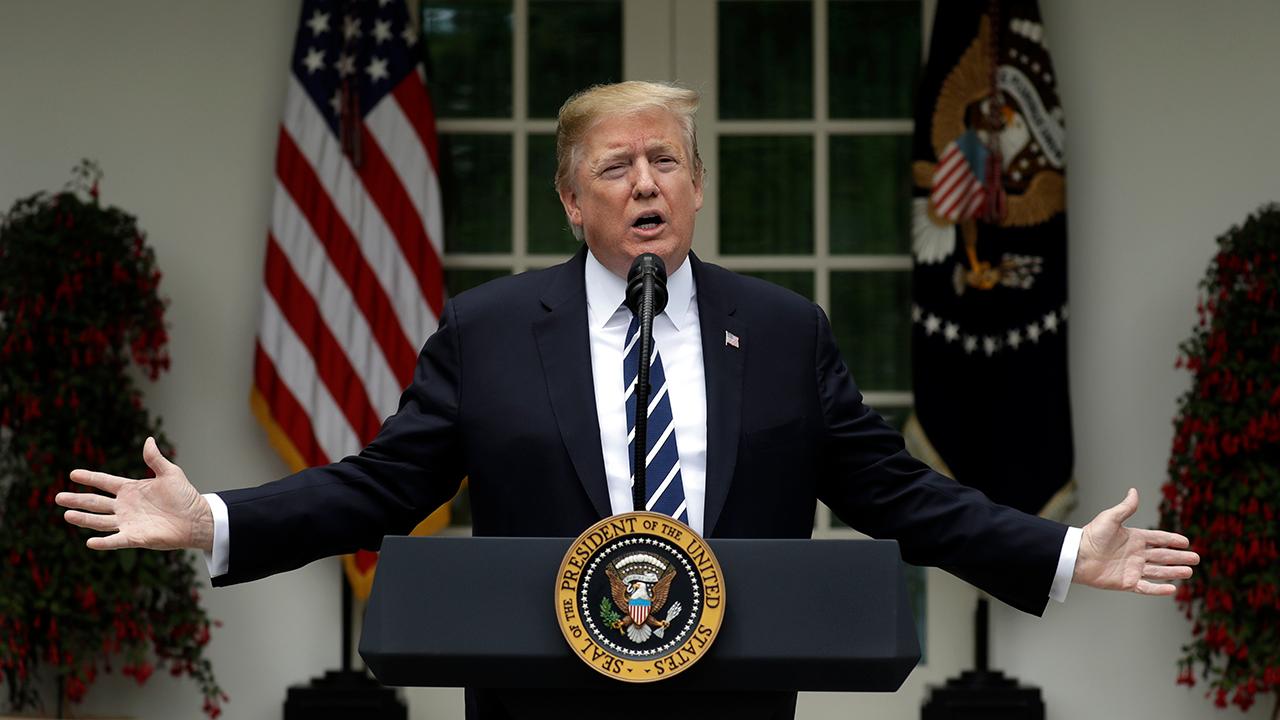Wilbur Ross downplays China prospects as tariffs spark opposition from US businesses
A top White House official is signaling that a potential final trade deal with China is months away after talks broke down last month, comments that come as U.S. businesses prepare on Monday to oppose in droves new tariffs on the Asian nation.
Commerce Secretary Wilbur Ross expects that, should President Trump and President Xi Jinping meet at the upcoming G-20 summit in Japan, the best outcome would be the relaunch of negotiations between the U.S. and China.
A subsequent agreement, Ross warned, could then take “10 months or longer.”
“The most that might come is new ground rules for discussion and some sort of schedule for when detailed technical talks might resume,” he told the Wall Street Journal. “At the presidential level they’re not going to talk about the details of how do you enforce a trade agreement.”
After China allegedly backtracked on previously agreed upon aspects of the still tentative trade deal, Trump raised to 25 percent existing tariffs on $200 billion in Chinese goods, bringing the total amount of products subject to the duties to $250 billion.
The White House is also considering extending the 25 percent tariff to another $300 billion in imports, a proposal that is facing stiff opposition from American businesses.
And while the administration argues it is not related to the trade discussions, Trump also recently signed an executive order to ban U.S. companies from exporting to Chinese telecom giant Huawei, an action that could cost the company $30 billion in two years, according to a top executive.
A number of companies have raised concerns over the impact of the ban. Google, for example, is reportedly warning that national security could be at risk because the tech behemoth would be restricted from updating its Android operating software on Huawei phones.
| Ticker | Security | Last | Change | Change % |
|---|---|---|---|---|
| GOOGL | ALPHABET INC. | 302.85 | -0.48 | -0.16% |
More concerning for corporate America, however, is the potential escalation of tariffs against China.
The United States Trade Representative is slated to begin hearing on Monday from U.S. companies on the impact. From interior designers to textile manufacturers, firms are expected to highlight over the seven-day hearing the detrimental effect of higher duties on one of the country’s main trading partners.
The issue for many businesses is the lack of available alternative outside of Chinese goods. NEMO Equipment, which produces outdoor gear like tents, said 97 percent of all of its camp chairs are shipped from the Asian nation.
| Ticker | Security | Last | Change | Change % |
|---|---|---|---|---|
| I:DJI | DOW JONES AVERAGES | 49395.16 | -267.50 | -0.54% |
| SP500 | S&P 500 | 6861.89 | -19.42 | -0.28% |
| I:COMP | NASDAQ COMPOSITE INDEX | 22682.729157 | -70.91 | -0.31% |
“We are having to re-invest in duplicate tooling and identify and validate new raw materials. Instead of focusing our limited resources on developing new, innovative products for future product lines, we have been spending significant resources on this duplicative work,” COO Brent Merriam wrote in comments to USTR.
The new tariffs, Merriam said, would “multiply significantly” the constraints the company is under.
CLICK HERE TO GET THE FOX BUSINESS APP
Others said shifting manufacturing to the U.S., a goal of the Trump administration, would be difficult and not produce any new jobs.
“The United States does not have the manufacturing capabilities or potential capabilities to meet the demand with respect to the fabrics available, looms available, printing available or dyeing capacities,” attorneys for Franco Manufacturing Co. wrote in a comment letter.




















